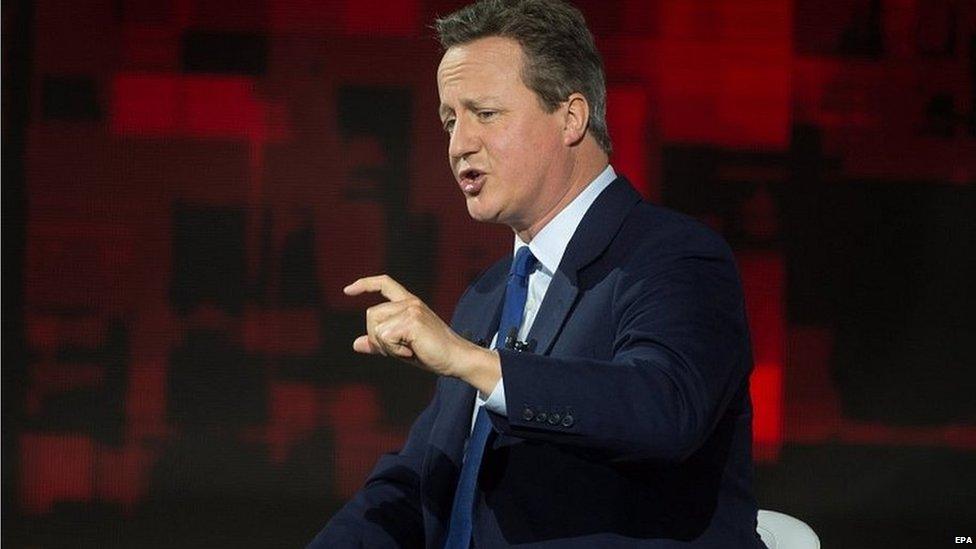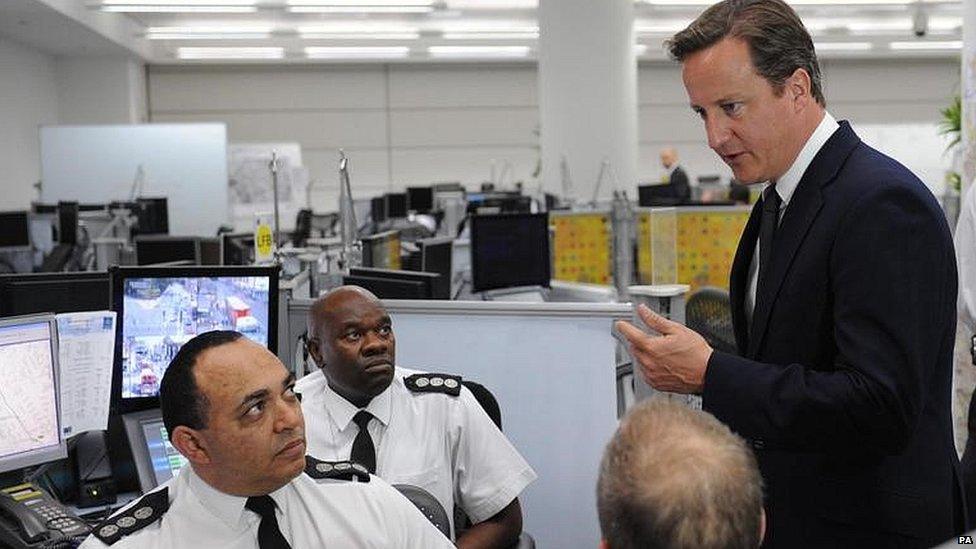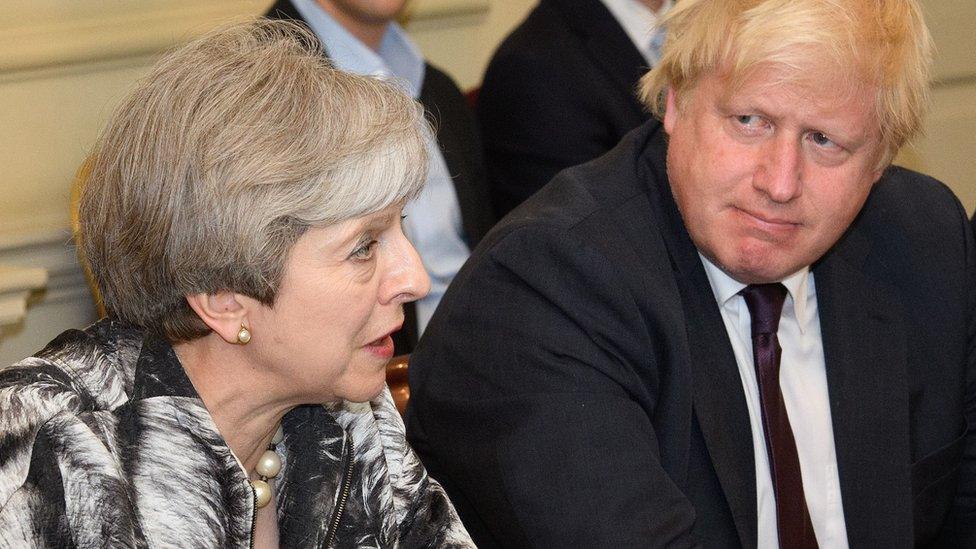Cameron says fiscal discipline not 'selfish' amid austerity debate
- Published

The former PM says leaving debts to future generations is wrong
David Cameron has said opponents of fiscal discipline are "selfish" not "compassionate", as the debate within the Tories over austerity continues.
The ex-prime minister, who introduced the public sector pay cap, said those who believed in "sound finances" were wrongly being painted as "uncaring".
"The exact reverse is true," he said at an event in South Korea. "Giving up sound finances isn't being generous."
Chancellor Philip Hammond has urged ministers to "hold their nerve".
As a growing number of Tory MPs, as well as opposition parties and unions, call for the 1% cap on public sector pay increases to be reviewed, the chancellor has said the "right balance" must be struck in terms of fairness to workers and taxpayers.
Foreign Secretary Boris Johnson expressed his support for a rethink on Monday, while Health Secretary Jeremy Hunt has said he sympathises with the millions of NHS workers whose pay has been squeezed since 2010 - firstly through a two-year pay freeze and then through the cap, which was imposed in 2012.
But Mr Cameron, who as prime minister of the Conservative-Lib Dem coalition oversaw six years of cuts to public spending, defended his government's record on cutting the multibillion pound annual deficit and suggested it would be a mistake to now loosen up efforts.

Five million public sector workers have seen their pay capped since 2012
"The opponents of so-called austerity couch their arguments in a way that make them sound generous and compassionate," said the former PM, who stood down as an MP last year, at a conference in Seoul.
"They seek to paint the supporters of sound finances as selfish, or uncaring. The exact reverse is true.
"Giving up on sound finances isn't being generous, it's being selfish: spending money today that you may need tomorrow."
'Pay our way'
Rises of 1% for dentists, nurses, doctors and the military have already been agreed for this year and No 10 said ministers would respond to pay review bodies next recommendations in due course.
Nigel Lawson, a former chancellor to Margaret Thatcher, said it was Mr Hammond's job to keep control of public spending and urged ministers to formulate the policy behind closed doors.
"It's not easy but it is necessary," he told BBC Radio 4's Today programme. "People understand we need to pay our way on the road to economic success."
The Institute for Fiscal Studies has said increasing pay in line with inflation next year could cost about £5bn and to do so for the rest of the Parliament could "easily cost twice that".
However, director Paul Johnson told the BBC that Mr Hammond had a range of options to ease the constraints on pay without breaching his immediate financial targets.
"If that were the government's biggest priority then it could probably afford to do it," he said. "The country would hardly be bankrupt if the government were to borrow a few billion more than currently planned."
But he said it was not clear how much "headroom" Mr Hammond would have given uncertainty over the performance of the economy and other spending pressures.
After the Tories' failure to win a majority, the chancellor has said it is up to his party to again make the case for a market-based economy, underpinned by sound public finances, and oppose those calling for a "different path".
Labour said immediate action was needed from the government not "just more empty words or infighting from members of the cabinet".
"The fact that some of the pillars of our community and the public sector such as teachers, doctors and police officers are seeing their pay cut exposes the double standards of a government that likes to praise their work but will not actually truly reward it," said shadow chancellor John McDonnell.
- Published3 July 2017

- Published3 July 2017